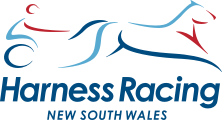There are many different ways to become involved as an owner of a trotter or a pacer. Horses are sold privately, through major auctions, out of claiming races and through syndication.
Success as an owner can be life changing, but like all worthwhile pursuits, there are pitfalls for the inexperienced and often challenges to overcome to achieve success so it pays to be prepared and do your homework before parting with any money.
Finding the right horse trainer is often the place to start as a trainer will make many day to day decisions that will affect your investment and you will need to rely upon his or her judgment and skill in obtaining the best outcome for your horse.
The NSW Standardbred Owner’s Association can assist potential owners or newcomers to the sport and ensure that their entry into harness racing is a positive one. If you would like some more information on owning standardbreds, please visit the NSWSOA website at www.nswsoa.org.au
Ownership Options
The following information will help you to identify the ownership option that best suits your circumstances. Importantly, it also explains how the payment of prizemoney under HRNSW’s centralised payments system differs according to each ownership type.
There are four different types of ownership available in NSW:
1. Sole Ownership
This involves owning a horse on your own and having complete control over all decisions for the horse from rearing, to racing, to breeding. It also means that any costs associated with the horse have to be paid completely by you.
However, if your horse experiences success, once the trainer is paid the percentage as per the Rules, the remaining prizemoney is yours.
2. Partnership
A partnership consists of between two and 10 people. Being in a partnership means that any associated costs with the ownership of the horse are split amongst the partnership members. It also means that all decisions relating to the horse must be approved by all members of the partnership and that each person is required to sign all documents relating to the ownership of the horse - for example, naming applications, ownership transfers and breeding decisions.
3. Syndicate
A syndicate consists of between two and 20 members and is a great way to become involved in harness racing with friends, family or colleagues.
A syndicate allows people to combine their resources to buy a horse under a syndicate name and gives you the opportunity to share the experience with others.
HRNSW finds that there are a number of syndicates registered that come about through sporting clubs, pubs and other groups of friends keen to experience the thrill of harness racing.
Syndicates work in much the same way as a partnership, however, there is an appointed ‘Syndicate Manager’ who is responsible for managing the affairs of the ownership group, including the distribution of the prizemoney.
Prizemoney is paid into one bank account designated by the Syndicate Manager for distribution to the members of the syndicate based on the ownership percentages nominated in the syndicate application. Therefore, HRNSW requires bank account details for the syndicate as part of the syndicate application.
Click here for an application form to register a syndicate.
4. Lease
Leasing a horse can be a cheaper option to experience horse racing. You can lease a horse with your friends and family without purchasing or owning the horse. The Lessee pays for all of the training fees and associated costs, keeps a percentage of any prizemoney won, and returns a percentage back to the owner (typically 20-30%).
An application form to register a lease can be [link to forms].
Prizemoney and Payments
The biggest benefit of direct racehorse ownership is obviously prize money, bonuses and trophies earned by your horse.
Prize money earnings are tax-free if ownership remains a hobby
Prize money is paid every second week directly into owners’ bank accounts by Harness Racing NSW. Prizemoney at race meetings varies from meeting to meeting and will depend on various factors.

